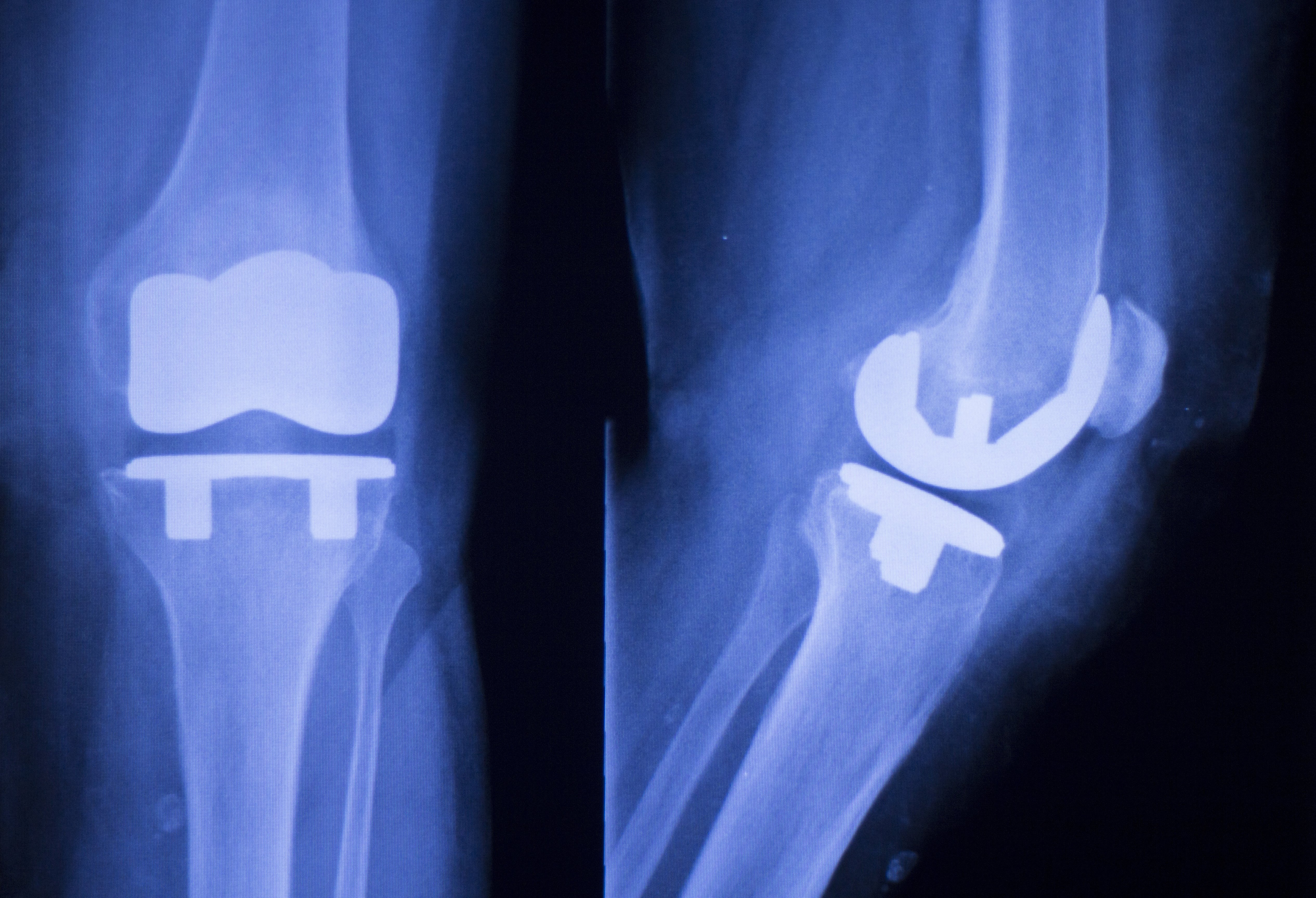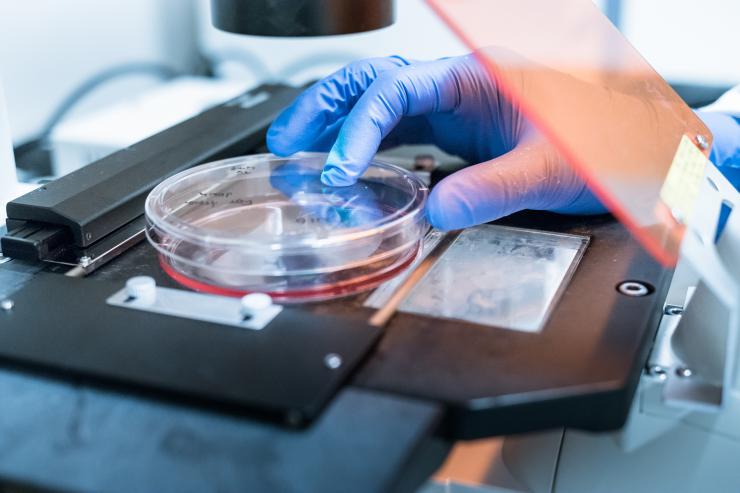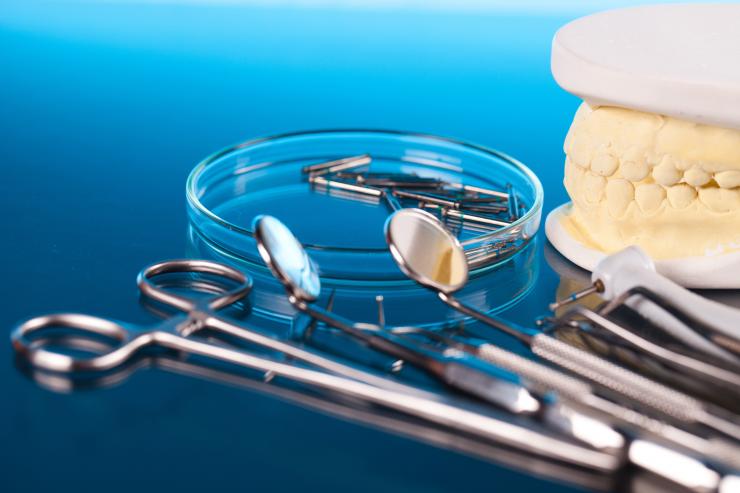In the medical industry, contamination is more than an inconvenience—it can be deadly. To ensure biocompatibility of medical devices, tools, and implants, we have developed a comprehensive list of analytical methods to identify potential threats. These processes support the research and practices that create medical marvels every day.
Cytotoxicity testing is an extremely sensitive analytic process that isolates test cells within a culture apart from the usual defense mechanisms offered by the human immune system, or unpredictable interference from a range of human microbiota. Cytotoxic agents kill cells, so evaluating cytotoxicity is an essential step in determining biocompatibility. To isolate and evaluate these compounds, researchers have developed a series of unique tests that offer a fast, delicate, and affordable method for detecting biologically dangerous extractables within a test sample.

Cytotoxicity Testing for Medical Research
Medical devices, tools, and implants come in direct contact with healthy human cells. In vitro testing methods allow technicians to evaluate these tools—and their materials—and efficiently assess their potentially toxic effects without any risk to animals or humans. This analysis can be combined with further evaluations to determine overall biocompatibility and identify contaminants.
Cytotoxicity testing is performed on living cells with several different laboratory-based testing methods:
- MEM Elution, or Testing by Extraction, is an excellent testing solution for medical devices. It’s universally accepted as the most robust test for detecting cytotoxicity. The process exposes living cell monolayers directly to a fluid extract of the test material to evaluate the reaction. Because it utilizes a fluid extract, MEM elution can test both individual device materials as well as a composite of the overall system of components.
- Direct Contact, or Testing by Direct Contact, is ideal for low density materials. The test element comes into direct contact with living cells on a growth culture medium. The sample is then incubated and monitored for potential reactivity, material diffusion, and overall cell health.
- The MTT Assay is a unique test due to its style. The process employs colorimetric methods to produce a quantitative result. The only style of cytotoxicity evaluation that does not rely on analyst interpretation, the MTT Assay is used to measure antibodies, environmental pollutants, medical devices, and much more.
- Agar Diffusion, or Testing by Agar Overlay, presents an excellent testing method for clear plastic parts such as contact lenses. During cytotoxic assay evaluation, the cell monolayers are cushioned with a layer of agar, upon which the test material is placed and observed.
IMR Test Labs has added cytotoxicity and medical device cleanliness to our suite of tests for the medical industry.
Biocompatibility Testing For Medical Devices
In the medical and dental industries, technology and the human body intersect. Contaminants, toxins, and threats to health and safety can be a matter of life and death.
The strict quality standards and rigorous testing processes that govern modern medicine ensure the safety and optimal performance of tools, implants, and devices. Testing labs evaluate biocompatibility well beyond cytotoxicity. Analysis of raw materials, research support, and process evaluations are all part of conducting thorough research.
These teams offer rigorous cleanliness tests, seeking contaminants left from manufacturing, packaging, and handling. They provide metallurgical analysis, fatigue and mechanical testing, and much more. It’s important to check all the boxes to ensure you’re delivering a safe, reliable, clean, and fully compatible device.

The Benefits of Cytotoxicity Testing
Cytotoxicity testing is an essential process for medical device and equipment manufacturers, as it enables determination of the safety of products before they come into contact with actual human tissue. Benefits of this type of testing include:
- Affordability
Most cytotoxicity tests are relatively inexpensive. The costs are easily justified due to the reduced risk to the end patient. Failure to certify the biocompatibility of medical devices in advance of use can end in human injury and costly litigation.
- Advanced screening
Before large amounts of raw materials are used in production, the safety of those materials can be determined in advance. Knowing whether intended materials are reactive or nonreactive from the start can be a great cost saver.
- Comparison
When multiple materials are under consideration for use in the fabrication of medical equipment, cytotoxicity testing can determine the safest material for the project. Similarly, cytotoxicity testing can help inform the decision-making process when replacement materials or manufacturing process changes must be considered.
- Exploration
Cytotoxicity test results offer preemptive warnings about raw material choices. If a material contains extractable substances, further testing can be conducted to determine the overall fitness of the given material for medical applications.

Cytotoxicity Testing with With IMR Test Labs
At IMR Test Labs, we’re proud to offer a full team of experts dedicated to obtaining a complete picture of your product’s performance. Our newly designed Cytotoxicity Lab is just one of the many rigorous biocompatibility analyses we support. At all of our global facilities, we offer a full range of highly educated engineers, chemists, lab technicians, support staff, and niche scientific experts that can gather data on your test sample and help you interpret what it means for your design and production schedule. Not just data, knowledge.


